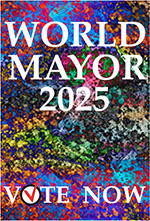The 2016 winners and honours list (original) (raw)
FRONT PAGE
About World Mayor
City Mayors Foundation
Email
worldmayor@gmail.com
Tel: +44 20 8439 7978


WORLD MAYOR 2018
• VOTE NOW
• Shortlist 2018
• Longlist 2018• Raison d'être
• World Mayor history
• World Mayor Prize
• Code of Ethics• Criteria
• Meet the Press
WORLD MAYOR 2016
• Results 2016
• Project 2016
• Shortlist 2016
• Longlist 2016
• Code of Ethics
• World Mayor Prize
• World Mayor History
• Raison d'êtreINTERVIEWS WITH
• Mayor of Athens
• Mayor of Lahr
• Mayor of Mechelen TESTIMONIALS
• Mayor of Aleppo
• Mayor of Amstelveen
• Mayor of Athens
• Mayor of Cologne
• Mayor of Gdansk
• Mayor of Grande-Synthe
• Mayor of Hettstedt
• Mayor of Lahr
• Mayor of Lampedusa
• Mayor of Lesbos
• Mayor of Mechelen
• Mayor of Philadelphia
• Mayor of Schwäbisch GmündESSAYS BY
• Mayor of Aleppo
• Mayor of Amstelveen
• Mayor of Athens
• Mayor of Gdansk
• Mayor of Lahr
• Mayor of Mechelen
• Mayor of Schwäbisch GmündPROFILES OF
• Mayor of Amstelveen
• Mayor of Athens
• Mayor of Cologne
• Mayor of Gdansk
• Mayor of Grande-Synthe
• Mayor of Lahr
• Mayor of Lampedusa
• Mayor of Lesbos
• Mayor of Mechelen
• Mayor of Schwäbisch Gmünd
---
Bart Somers, Mayor of Mechelen, Belgium
awarded the 2016 World Mayor Prize World Mayor Commendations for the Mayors of Lahr (Germany) and Athens (Greece) By Tann vom Hove, Matteo Dalle Fratte, Jonas Schorr and Brian Baker
14 February 2017: Bart Somers, the Mayor of Mechelen, Belgium, has been awarded the 2016 World Mayor Prize. World Mayor Commendations are being conferred to Wolfgang G Müller, Mayor of Lahr, Germany, and Georgios Kaminis, Mayor of Athens, Greece. The 2016 World Mayor Project honours mayors and their communities that have welcomed refugees and offered them safety, shelter and support.
Many of the mayors included in the top-10 honours list have developed and invested in longterm strategies as well as day-to-day measures to successfully integrate newcomers from different countries and cultures. They have also addressed local residents’ fears of and reservations about the arrival of people who speak foreign languages, observe their own customs or practise different religions.
Mayors cannot accomplish the successful integration of immigrants without the support of their communities. But to rally that support, municipal leaders have to show leadership and courage. They may have to convince a conservative, sceptical and sometimes even hostile local population that welcoming displaced people from disaster-torn regions is a moral obligation and that immigrants will make towns and cities culturally more vibrant, socially more outward looking and economically richer. The mayors honoured by the World Mayor Project have proved that they have the vision and skills to deal with the most challenging but also rewarding task facing towns and cities today.
Athens, Lampedusa and Lesbos, the three Mediterranean communities in the World Mayor Honours List, must receive special recognition for the welcome they offered to tens of thousands of men, women and children who were fleeing the fighting in the Middle East or poverty in Africa. Spiros Galinos (Lesbos), Guisi Nicolini (Lampedusa) and Giorgos Kaminis (Athens) deserve praise. The international community must offer municipalities on the Mediterranean front line generous financial and practical assistance. The inadequacy of support became woefully apparent when many refugee camps in Greece found themselves totally unprepared for the wintry conditions in early 2017.
The 2016 World Mayor Honours List
| 1 | Bart Somers | Mayor of Mechelen | Belgium |
|---|---|---|---|
| 2 | Wolfgang G Müller | Mayor of Lahr | Germany |
| 3 | Georgios Kaminis | Mayor of Athens | Greece |
| 4 | Giusi Nicolini | Mayor of Lampedusa | Italy |
| 5 | Richard Arnold | Mayor of Schwäbisch Gmünd | Germany |
| 6 | Mirjam van 't Veld | Mayor of Amstelveen | Netherlands |
| 7 | Spiros Galinos | Mayor of Lesbos | Greece |
| 8 | Pavel Adamowicz | Mayor of Gdansk | Poland |
| 9 | Damien Carême | Mayor of Grande-Synthe | France |
| 10 | Henriette Reker | Mayor of Cologne | Germany |
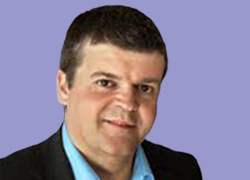 Bart Somers,
Bart Somers,
Mayor of Mechelen, Belgium
Winner of the 2016 World Mayor Prize
Bart Somers has been Mayor of Mechelen (population 86,000) since 2001. Long before the flow of refugees from the Middle East and Africa became officially a ‘crisis’ in the summer of 2015, Bart Somers recognised the utmost importance of integration. In an interview with World Mayor, the Mechelen Mayor says “What counts is not your origin, but your future.” With more than 128 different nationalities, Mechelen is one of the most diverse cities in Europe but it is also a city where first and foremost everyone is a citizen of Mechelen.
The Mayor, a liberal by conviction and politics, supports personal freedom within a framework of fundamental human values. In the interview - the questions were asked by an international audience - Bart Somers says: “If we consistently, not selectively, put our fundamental principles - I am talking equal opportunities, non-discrimination, in addition to equality between men and women and freedom of speech etc - into practice, then we make the model of rule of law and democracy more appealing, more attractive than extremist alternatives.”
Perhaps unusual for a liberal politician, Bart Somers is tough on crime. Indeed, he has been labelled a law-and-order mayor and given the nickname ‘Mr Zero Tolerance’. Safety and security are essential for people to strive for success and happiness. Mechelen has provided its police force with more resources and has installed more CCTV cameras than any other town in Belgium. MORE
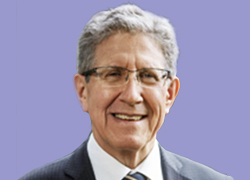
Wolfgang G Müller,
Mayor of Lahr, Germany
Winner of the World Mayor Commendation for services to integration
Dr Wolfgang G Müller has been Mayor of Lahr (population 45,000) since 1997. In his World Mayor interview, Wolfgang Müller, when asked to describe Lahr’s integration strategy, replies: “For immigrants, successful integration into a new culture does not mean they have to give up their native cultures or their own languages. We don't want to create carbon copies of ourselves! But we do ask immigrants to take on responsibility for ensuring that their integration is successful. We ask for openness towards new learning processes. Sustainable integration demands continuing work towards providing equal access to the central areas of life in our society. These include the worlds of economics and labour, the education and qualification systems, neighbourhoods, and political, social, and cultural realms. For me personally, it’s important that citizens participate in the decision-making process and in shaping opinions in the city, making a peaceful contribution to our community.”
Lahr’s integration of some 9,000 German-Russian newcomers into a town of less than 35,000 people in the 1990s is an important success story. It took some time to overcome the doubts of the local population and the anxiety of the newcomers, but during the past 20 years the new citizens found work, established businesses and started families. However, every-day differences remain. Most still speak German with a Russian accent, cook Russian dishes or watch Russian TV. Integration does not mean conformity, says the Mayor of Lahr. In his essay for World Mayor Wolfgang Müller writes: “Twenty years ago, the vast majority of Lahr residents and the German-Russian newcomers got on well with one another. They developed a common identity while also maintaining their cultural uniqueness. Many German-Russians speak German but also many speak Russian among themselves. The German Lahr residents and the German-Russian new Lahr residents each have their own characteristics, but they also share a common basis. They are proud to be citizens of Lahr and feel at home here.” MORE
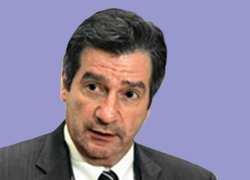
Georgios Kaminis,
Mayor of Athens, Greece
Winner of the World Mayor Commendation for services to refugees
Georgios Kaminis has been Mayor of Athens (population 665,000) since January 2011. In the summer of 2015 at the beginning of the refugee crisis, thousands of refugees arrived in Athens with little forewarning. In his essay for World Mayor, Mayor Kaminis writes that the city, with very little infrastructure or experience in refugee reception, suddenly found itself in the forefront of the biggest European refugee movement since World War II. “Within the course of a few weeks, city squares and parks quickly became the unofficial meeting point and temporary home for thousands of refugees.”
The Mayor and the municipal authorities quickly realised that the crisis was not short-term and that the City of Athens had a moral obligation to provide safety, shelter and food for the refugees. Mayor Kaminis says that being aware of the severity, scale and extent of this humanitarian crisis, he decided to dedicate a municipal space for the creation of the Elaionas camp. Established in August 2015, Elaionas was the first temporary accommodation centre in the country. It currently provides shelter to nearly 2,400 refugees. At the beginning of 2017, there were nearly 10,000 refugees in Athens, waiting to have their asylum status determined or to be relocated to other European countries.
Athen’s municipal authorities have worked closely with the government, which now runs the Camp Elaionas, and a number of NGOs. An Australian delegation, which visited the camp shortly after it opened, was astonished how humanely the camp residents were treated. A visitor said: “I guess how we treat asylum seekers in Australia is very like a prison and I had expected to see that. The freedom that camp residents enjoyed is completely different to what I had expected. We are used to seeing images of jail-like conditions, like on Manus Island [an Australian immigration detention facility]. It shows that you can have different approaches and responses.” MORE
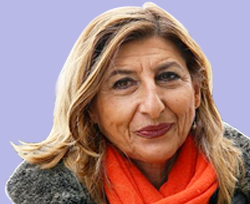
Giusy Nicolini,
Mayor of Lampedusa & Linosa, Italy
Awarded fourth place
Giuseppina Nicolini has been the mayor of Lampedusa and Linosa (population 6,500) since May 2012. In November 2012, after only six months in office, the Mayor of the Sicilian islands of Lampedusa and Linosa sent an urgent appeal to Europe’s leaders in Brussels. Introducing herself, she expressed her outrage that the European Union, which had just received the Nobel Peace Prize, ignored the tragedies that were occurring at its Mediterranean borders.
During 2015 and 2016, Mayor Nicolini continued her determined commitment to both refugee crisis management and refugee integration. In 2016, there were more than 180.000 landings in Italy alone. At the end of August 2016, Nicolini had to deal with one of the most dramatic situations on her Island. During darkness, a big ship with 1,200 migrants, was diverted from Palermo to Lampedusa because of fighting onboard. Lampedusa’s reception centre, designed to house 450 people, had to accommodate a total of 1,737 refugees.
Mayor Nicolini is against the re-opening of CIE (Centri di identificazione e di espulsione), centres to identify dangerous migrants and then expel them. Nicolini says that the facilities failed in the past. She is also convinced that returning migrants to their home will never make the situation better. The problem is that the government is trying to solve the problem of the Centri di accoglienza (Welcome Centres), where fires, riots and murders are everyday occurances. Nicolini declared that the problem is to recognise the individuals who create problems and see how one can help them in prison to avoid any radicalism.
Nicolini says: “Sending migrants straight back home to countries, which have no agreements with Europe, is an action that does not respect human rights”. Decisions like this, Nicolini continues, will only create new problems and more suffering, both for migrants and local communities.
For Nicolini ‘appeasing populism is not the solution’. Nicolini continues: “The reasons that make people to flee from their countries, are not more the same as they were 20 years ago. If we don’t understand this, we will keep increasing poverty, terrorism and diseases. We will never solve the problem of migration by creating walls of policemen”. Mayor Nicolini calls for more co-operation and burden sharing across Europe. MORE
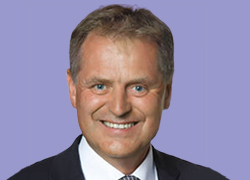
Richard Arnold, Mayor of Schwäbisch Gmünd, Germany
Awarded fifth place
Richard Arnold has been Mayor of Schwäbisch Gmünd (population 60,000) since 2009. He studied public administration at the universities of Konstanz and Frankfurt. After a scholarship year at one of America’s elite universities, the Massachusetts Institute of Technology“ (MIT) in 1988, Arnold worked for two years at the Centre for European Policy Studies in Brussels as expert on EU agricultural and environmental policies. Before returning to Brussels in 2000, he occupied several senior posts with the state government of Baden-Württemberg in Stuttgart.
During his years outside Germany, Richard Arnold embraced globalisation - he speaks German, English, French, Dutch and Spanish - but also learnt that in an increasingly mobile, outward-orientated society, the role of the local community was more important than ever.
Richard Arnold was one of the first German mayors who thought longterm about the integration of immigrants. Years before the summer of 2015, when Germany allowed hundreds of thousands of Syrian refugees and displaced people from other disaster-torn regions into the country, the Schwäbisch Gmünd Mayor offered ideas and practical measures to allow refugees and immigrants to become part of the local community. For example, he thought it absurd to house large numbers of newly arrived refugees in converted industrial buildings and force them to idleness. Instead, Mayor Arnold believes one should start with the premise that “all asylum seekers and refugees are to become an integral part of the community”. MORE
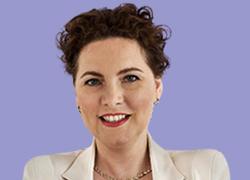
Mirjam van ‘t Veld,
Mayor of Amstelveen, Netherlands
Awarded sixth place
Mirjam van ‘t Veld has been Mayor of Amstelveen (population 90,000) since July 2014. Before that, she was Mayor of Maarssen (2008-2011) and Mayor of Stichtse Vecht (2011-2014). ). In the Netherlands, municipal councils recommend mayoral candidates to the government. In most cases, the interior minister follows the recommendation and appoints the mayor who will then be formally approved by the King. Mirjam van ‘t Veld is a fully qualified nurse and worked at the Lichtenberg Hospital in Amersfoort between 1988 and 1996.
When, in autumn of 2015, the local authority of Amstelveen announced that it would house Syrian asylum seekers and refugees in an empty office building, many local residents raised concern. After all, the proposed property was close to the town’s Jewish quarter and it was feared there would be clashes between Jews and Muslims. Members of one of the largest Jewish communities in the Netherlands feared attacks on children wearing the kippah by newcomers who had been “brainwashed since birth to hate Jews”. While Mayor van ‘t Veld understood the anxiety of Jewish residents, she believed the best way to overcome the mistrust between residents and newcomers was to initiate an open dialogue. She also says the best way to banish any ingrained hostility between people of different religions or races is to enable them to meet face to face and exchange their stories.
The Amstelveen Mayor assured the Jewish community that the town was proud of them and she would do everything to prevent anti-Semitic instances. But she also asked Jewish residents to give dialogue a chance. The Mayor succeeded. Jewish volunteers visited the refugee shelters, where they drank coffee with the newcomers while comparing their different cultures and often discovering many similarities. MORE
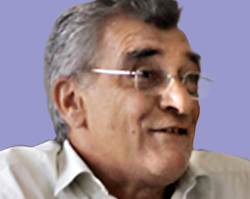
Spiros Galinos
Mayor of Lesbos, Greece
Awarded seventh place
Spiros Galinos has been Mayor of Lesbos (population 87,000) since May 2014. When Mayor Galinos was elected almost three years ago, he could not have imagined that the flow of refugees would increase so dramatically the following year. "In 2014 we had only 50 people coming per day. In August 2015 the arrivals had reached 10,000 per day and from September to October we had up to 8,000 people daily," the Mayor said. When the cases of drowning increased dramatically, Mayor Galinos suggested to the Greek government and European Union officials to send a ship to Turkey on a regular basis to bring refugees to Lesbos. “That would have allowed registration in an organised way without putting lives in danger.”
The Lesbos Mayor also suggested allowing up to 20,000 people to settle permanently on the Island and offer them an opportunity to start a new life. With his proposal he wanted to send a message against xenophobia. "Europe does not need to be afraid of the refugees. They can be part of our communities and contribute to the economic development by paying their taxes and setting up home. The money would re-circulate in the community. This plan could be implemented as a pilot program in Lesbos and I am sure that other regions would eventually follow." MORE
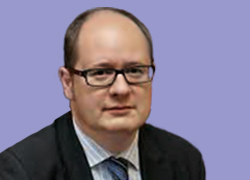
Pawel Adamowicz
Mayor of Gdansk, Poland
Awarded eighth place
Pawel Adamowicz has been Mayor of Gdansk (population 462,000) since 1998. Mayor Adamowicz, a native citizen of Gdansk, is immensely proud of his city. In an essay written for World Mayor, he says that Gdansk was the city were the Solidarity movement was born and where Lech Walesa - the historical leader, who led the peaceful Solidarity movement against the communist regime, still lives. “Being a mayor of a city with such a heritage is an obligation. An obligation to share our experience and to remain true to our heritage of freedom, cooperation and democracy.”
Freedom, cooperation and democracy have been the main building blocks of Pawel Adamowicz’s politics since he became mayor. At a time when the Polish government resorts to anti-immigrant rhetoric, the Gdansk Mayor believes the city has a Christian duty to welcome everyone in need, knocking at its gate.
There are currently some 20,000 immigrants in Gdansk and the Mayor’s priority is to build a relationship with them, based on tolerance and mutual trust. To make the city more immigrant-friendly, Mayor Adamowicz’s administration set up the Council of Immigrants, whose 12 members advise the mayor and the city administration on integration and explain the special needs of various immigrant groups. The ‘Council’ members came to Gdansk from countries as far afield as Colombia, Tunisia and Syria but also from neighbouring countries like Germany, the Ukraine and Russia. Despite opposition from anti-immigrant groups, the Mayor believes the Council of Immigrants will be a success and sees himself as a pioneer. “Other cities in Poland and, indeed, Europe will want to learn from our experience.” MORE
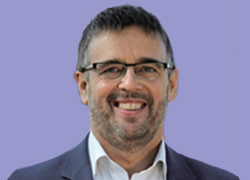
Damien Carême
Mayor of Grande-Synthe, France
Awarded ninth place
Damien Carême has been Mayor of Grande-Synthe (population 24,000) since 2001. Grande-Synthe, a community on the outskirts of Dunkirk, is like many towns in northern France utilitarian rather than picturesque. The A16, a major highway connecting The Netherlands, Belgium and France, provides easy access to Calais and, through the Channel Tunnel, to Britain. Every day hundreds of trucks pass through Grande-Synthe on their way to England and often stop at a service station in the town. Some ten years ago, the first migrants from the Middle East and Africa arrived in Grande-Synthe, hoping to find truck drivers who would smuggle them to Britain or they would board lorries without the knowledge of the drivers. In those days, refugees would not remain in the town for more than a day.
With the arrival of women and children in 2008, the situation changed dramatically. Instead of managing to find a passage to Britain fairly easily, refugees took possession of some land and set up a makeshift camp. In the winter of that year, when the temperature dropped to minus 15 centigrade, the local authority of Grande-Synthe felt it had to intervene. It provided heated tents and toilet facilities. Mayor Carême recalls receiving a letter from the sub-prefecture (sous-préfecture) warning him that his humanitarian action was creating a pull factor and would lead to the arrival of more and more migrants, including people smugglers. The mayor responded by saying that if the town did not provide basic facilities, the migrants would start knocking at peoples’ doors. MORE
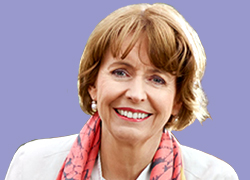
Henriette Reker
Mayor of Cologne, Germany
Awarded tenth place
Henriette Reker has been Mayor of Cologne (population 1.1 million) since October 2015. Standing as an independent but backed by the centre-right Christian Democrats, the pro-business Liberals and the Green Party, she won almost 53 per cent in the first round of the mayoral election. She is the city’s first female mayor.
One day before the election, while attending a campaign meeting, Henriette Reker was attacked and stabbed in the neck. Initially her condition was thought to be critical but after doctors operated and described her as stable, it was decided for the election to go ahead. The candidate from the Social Democratic Party suspended his campaign out of respect for his rival. Germany’s federal public prosecutor pronounced the attack as political motivated after the attacker admitted to hating refugees. Prior to being elected Mayor, Reker was one of Cologne’s deputy mayors with special responsibility for refugees. When, in July 2016, her attacker received a 14-year prison sentence, Mayor Reker commented that she hoped he would come to understand that hate and violence don’t solve anything.
During the height of the refugee crisis in 2015, when Germany allowed hundreds of thousands of displaced people from Syria to enter the country, Henriette Reker attracted nation-wide attention for her un-orthodox measures of housing refugees. Her department bought hotels and commandeered public buildings, some of them listed, to accommodate families. She also campaigned against discrimination and racism. MORE
